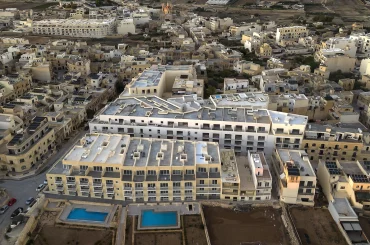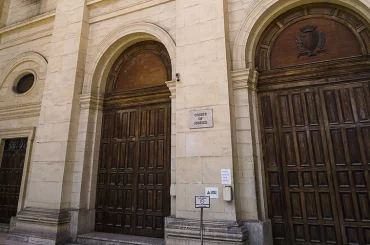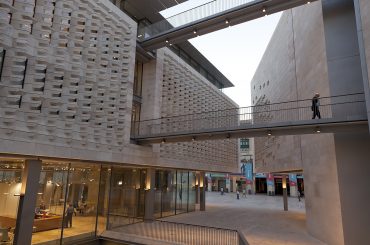Malta’s investor residence schemes, which are separate from the better-known passports scheme, are among the most successful in the EU. The flagship of these schemes is called the Malta Permanent Residence Programme, and it has attracted a number of permanent residents, mostly from China, greater than the population of Valletta over the past 5 years.
But Russia’s war on Ukraine has inflamed longstanding misgivings in the EU. In a formal “recommendation” three weeks ago, the EU Commission said: “Investor residence schemes raise inherent security, money laundering, tax evasion and corruption risks for Member States and for the EU as a whole. Russia's aggression against Ukraine has once again underlined these risks.”
The commission then went on to call on countries “to ensure strong checks are in place to address the risks posed by investor residence schemes.”
An analysis by the Organisation for Economic Cooperation and Development (OECD) pinpointed Malta’s and Cyprus’s investor residence schemes are being exposed to the greatest inherent risks within the EU. The OECD is an international organization that has an international influence on, and interaction with, governments’ policies on prosperity, equality, opportunity and wellbeing.
The OECD’s analysis was carried out in the context of the Common Reporting Standard. The Standard was developed in 2014 on a request from the G20, a grouping of the 20 largest economies in the world, as a tool to combat money laundering and tax evasion/avoidance. It created a setup for countries to exchange information on financial flows arising from investments and financial assets. The OECD says that the Standard “sets out the financial account information to be exchanged, the financial institutions required to report, the different types of accounts and taxpayers covered, as well as common due diligence procedures to be followed by financial institutions.”
The EU adopted elements of the Standard in a directive in 2014, and Malta now falls under the reporting obligation. Malta reports on investors’ financial activity involving funds, dividends, interests, proceeds of sales of financial assets, even income from certain insurance products. Malta also has to report on tax residence of financial investors.
Yet it appears that holders of Maltese residence permits, particularly permanent residence holders, would not fall under Malta’s reporting coverage for as long as they do not have financial investments held in Malta, or are not registered with Malta’s tax authorities.

And the OECD expressed the concern that ID Cards and other documentation obtained through Malta’s investor residence schemes – as well as investor citizenship schemes (the passport scheme) – could “be potentially misused to misrepresent an individual's jurisdiction of tax residence and to endanger the proper operation of the Common Reporting Standard due diligence procedures.”
Any foreigner who gets a residence permit in Malta is eligible for an ID Card.
The OECD stated that such residence schemes may pose a “high risk to the effective implementation of the Common Reporting Standard.”
Malta has three residence schemes. A digital nomad residency, in which grantees are precluded from paying tax in Malta; a Global Residence Programme that obliges recipients to remit at least €100,000 in earnings to Malta and pay €15,000 in taxes yearly; and a Permanent Residence Programme in which recipients get long-term residence and fall under Malta’s tax rules.

In each case, Malta has no overview of the residence-holders’ income or tax affairs. In the case of Global Residence Scheme, Malta limits its interest to taxing a minimal remittance of €100,000 at 15 percent. As for the Permanent Residence Programme, a tax advisor consulted by this website said that recipients are “not registered” with the tax department – and do not have to report on their tax affairs – upon being granted residence. They are legally responsible to fill a tax return and pay tax only if and when they become eligible for tax – this in turn depends on interplay of three variables: domicile, ordinary residence, and source of income. As such, Malta remains blind to residence-holders’ income and tax affairs beyond the narrow requirement of maintaining their residence for as long as they do not have financial investments in Malta, or income arising from Malta, or self-reporting for tax in Malta.
Almost 9 in 10 of the approvals in the permanent residence programme are Chinese nationals, and a source in China – someone who deals with Chinese businesses and official delegations on foreign investments – told this website that the potential for tax avoidance or tax evasion is one of the reasons for most wealthy Chinese’s interest in residence schemes such those operated by Malta. He also said that regulation in China has been tightening.
Spurred by Russia’s war on Ukraine, the EU Commission and parliament are also moving towards tighter EU-wide regulation. The feeling is that this has become an EU issue because residence-holders gain access to the entire Schengen area – the open border area comprising 26 countries in Europe – as well as the EU’s banking system. Residency Malta in fact highlights such access as a benefit in its brochure on the Permanent Residence Programme – the fact that residence-holders “enjoy visa-free travel across Schengen, 90 out of 180 days.”

In its recommendation of three weeks ago, the EU said: “Member States should take all necessary measures to prevent investor residence schemes from posing security, money laundering, tax evasion and corruption risks. This includes establishing and carrying out checks related to the conditions of residence and security before issuing such residence permits, and verifying whether residence is continuous.”
The discourse around ‘continuous residence’ is emerging as a key point that may be enshrined in a new regulation that the European parliament last month overwhelmingly voted for – by 595 votes for and 12 votes against (with 74 abstentions) – tasking the EU Commission to draft a law on golden visas. The law is set to establish minimum standards.
In plainer English, the EU seems to be saying that residency permits for wealthy non-EU nationals are fine for as long as the recipients actually set some roots and be subject to enhanced scrutiny. The EU also wants to see clearer benefits from these investor residents.
This deviates from Malta’s current approach. In its most successful scheme – of permanent residence – Malta seems to primarily go for immediate gains: tens of thousands of euros in application fee, tens of thousands of euros in government contribution and NGO donation, purchase or rent of property.
Malta’s approach is possibly shaped by the realization that most of these permanent residents may not actually want to live and invest in Malta, but seek Maltese residence permits for a variety of other reasons. These reasons are not only tax avoidance or tax evasion, but also gaining access to the EU and having a fallback base or foothold within Europe.
Yet the EU now wants to see not only enhanced scrutiny and minimum physical residence, but also added value and involvement in the European economy as an upfront obligation.
This is the final article is a series of four articles about Malta’s golden passports and golden visas. The others covered the EU’s legal action against Malta’s citizenship investor scheme (golden passports), the potential for tax avoidance by digital nomad residence holders, and the lack of news in Malta about permanent-residence holders, whose number is larger than the population of Valletta.





